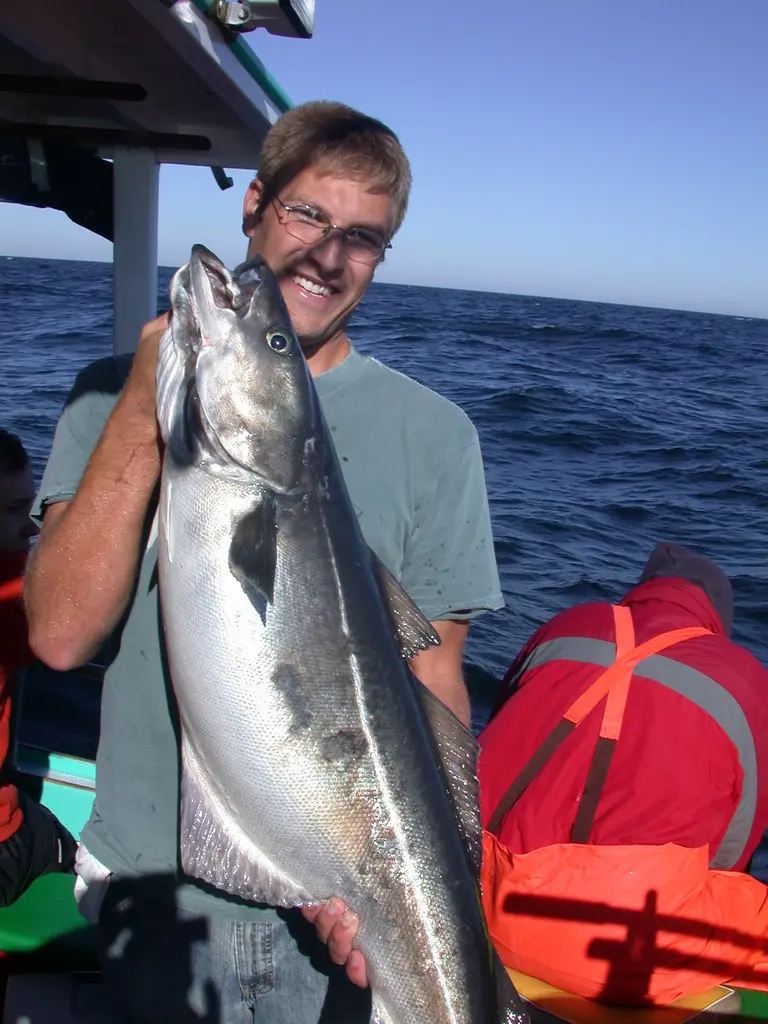|
| Common Hunting Fishing Mushrooming Foraging |
|
Pollachius virens |
August: Peak activity. The saithe actively searches for food and moves in search of food.
No threat. Important commercial species in the North Atlantic. Used in traditional Norwegian, Icelandic, and Russian cuisine.
Inhabits northern seas, common near Norway and Murmansk. Feeds on small fish, shrimp, and crustaceans. Elongated body with dark back coloration.
Sea fishing from boat using jigs Casting spoons and soft baits Vertical fishing from depth with natural bait
Forms schools near rocky seabeds. Most active in morning and evening. Responds well to fast bait retrieval.
5 August 2025 Good bite
6 August 2025 Good bite
7 August 2025 Good bite
8 August 2025 Good bite
9 August 2025 The average bite
10 August 2025 The average bite
11 August 2025 The average bite
6 August 2025 Good bite
7 August 2025 Good bite
8 August 2025 Good bite
9 August 2025 The average bite
10 August 2025 The average bite
11 August 2025 The average bite
Gut and chill immediately after catch. Meat is light, lean, and tender. Suitable for various cooking methods. Popular commercial fish.
Fillet: Frying, baking, casseroles
Belly: Boiling, fish soup
Head: Broths, soups
Belly: Boiling, fish soup
Head: Broths, soups
Breaded Fried Pollock (Frying)
Crispy crust with tender meat
Crispy crust with tender meat
1. Cut fillet into pieces.
2. Coat in flour with salt and spices.
3. Fry until golden brown.
2. Coat in flour with salt and spices.
3. Fry until golden brown.
Baked Pollock with Vegetables (Baking)
Tender fish with vegetable aroma
Tender fish with vegetable aroma
1. Place fillet in baking dish with onion, carrot, and tomatoes.
2. Add salt, oil, and bake at 180°C (350°F) for 25–30 minutes.
3. Serve hot.
2. Add salt, oil, and bake at 180°C (350°F) for 25–30 minutes.
3. Serve hot.
Pollock Soup (Boiling)
Light fish soup with vegetables
Light fish soup with vegetables
1. Boil head and backbone, remove bones.
2. Add potatoes, carrots, and spices.
3. Cook until vegetables are tender, serve with herbs.
2. Add potatoes, carrots, and spices.
3. Cook until vegetables are tender, serve with herbs.
Pollock and Potato Casserole (Baking)
Hearty everyday dish
Hearty everyday dish
1. Layer fillet, potato, and onion.
2. Pour over cream or egg-sour cream mix.
3. Bake at 180°C (350°F) for 30–40 minutes.
2. Pour over cream or egg-sour cream mix.
3. Bake at 180°C (350°F) for 30–40 minutes.
 United States
United States


